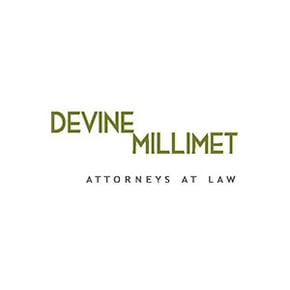
Have You Thought About Your Business Succession Strategy?
Most business owners focus on the daily operations and strategy of the business; few give sufficient attention to how they will exit the business.
PARTNER SPOTLIGHT
Dealer Management System, Computer Technology, Media/Advertising, Automotive Auction, F & I/Aftermarket Products, Automotive Technology Training & Compliance
 A NHADA Gold PARTNER
A NHADA Gold PARTNERComputer Technology, Automotive Shop Equipment, Environmental Services
 A NHADA Platinum PARTNER
A NHADA Platinum PARTNERF & I/Aftermarket Products, Automotive Technology Training & Compliance, Environmental Services
.png?width=150&name=corp_logo_horz_on_light_with_trademark_symbol_1200w%20(002).png) A NHADA Diamond PARTNER
A NHADA Diamond PARTNER |
| Tabitha Croscut |
In fact, few think about who will buy the business when they no longer have the drive and energy to continue with its ongoing demands. Owners often wait until it’s too late to consider various
options, at which time the only answer might be selling to a third party, perhaps a competitor or private equity group. For some, that last minute strategy ends with success, but for many, that is not an acceptable or desired solution to their ownership succession.
There are limited options for business succession. The standard list for most businesses includes a third party sale, management buyout or transfer to family members, but have you heard about ESOPs? Employee stock ownership plans (ESOPs) have been around since 1974, yet only approximately 7,000 businesses are currently utilizing an ESOP for their transition needs.
ESOPs are a great alternative for business owners who don’t want to turn the keys over to a stranger and who have no family in the business ready to purchase the owners’ equity.
 |
| Joseph Rheaume |
As a qualified retirement plan, ESOPs serve as a mechanism for employees to receive the value of company stock as a retirement benefit and as a purchaser of an owner’s company stock. An ESOP’s purchase of company stock from the owners results in a business that continues to operate without changes to management or operations (i.e., former owners can continue to serve in the same role), and employees don’t worry that a third party will relocate operations. ESOPs can be implemented in a way that allows business owners to sell their company stock all at once or incrementally. There are also significant tax advantages that can only be obtained with ESOPs (and co-ops).
ESOPs offer many tax benefits to companies. Instead of using after tax dollars to buy company stock (the traditional approach to ownership succession), the ESOP purchases company stock with the Company’s pre-tax dollars. Additionally, Internal Revenue Code Section 1042 allows an individual who sells company stock to an ESOP (Seller) to elect to defer capital gains tax on the proceeds of the sale potentially forever. That means that a selling owner can avoid sending the IRS a significant tax payment on such sale, provided that the requirements of Code Section 1042 are met, which requires reinvestment of the ESOP transaction proceeds. If the Seller meets such requirements and doesn’t liquidate the investments, at the time of the Seller’s death those investments will have a stepped-up basis and nobody will ever pay the original capital gains taxes from the sale of the shares. Essentially, the owner has deferred the capital gains tax forever!
The really powerful tax advantage of ESOP ownership of company stock is found with ESOP companies taxed as S corporations. Corporations are taxable either as C corporations (the company pays the annual income tax) or as S corporations (the shareholders pay the company’s annual income tax). As qualified retirement plans, ESOPs are exempt from paying income tax. Therefore, if an ESOP owns the company’s stock, that portion of the company’s taxable income is nontaxable. If the ESOP owns 100% of a company’s stock, the company no longer pays federal income tax (and oftentimes, no state tax). This frees up that extra cash!
Although not the right strategy for every business, every owner should consider whether an ESOP might be their best strategy. It’s worth a conversation with an ESOP attorney (at no cost) to analyze whether or not an ESOP is appropriate before an owner makes one of the biggest decisions in the lifecycle of a business.



















.png?width=150&name=Ally_Final%20Logos%20and%20Pairings_11.14.2018-01%20(2).png)


-2.png?width=150&name=Wipfli%20Logo%20Blue%20RGB%20(1)-2.png)


.jpg?width=150&name=NHADA_Partner_FTR_Img_NHADA_Insurance%20(1).jpg)


.jpg?width=150&name=NHADA_Partner_FTR_Img_JMA(1).jpg)

